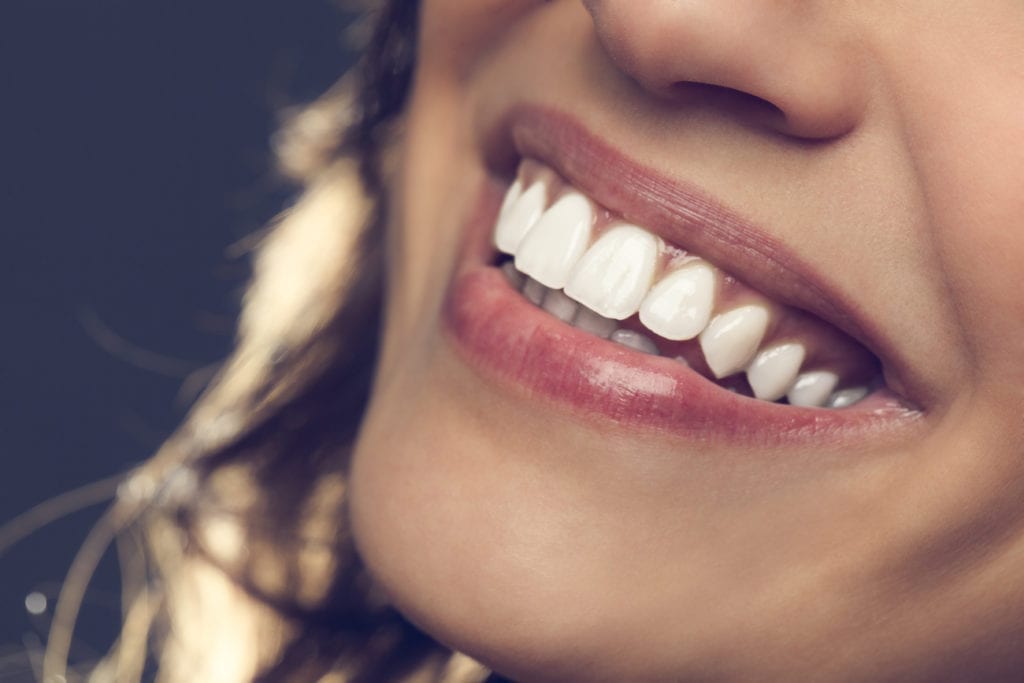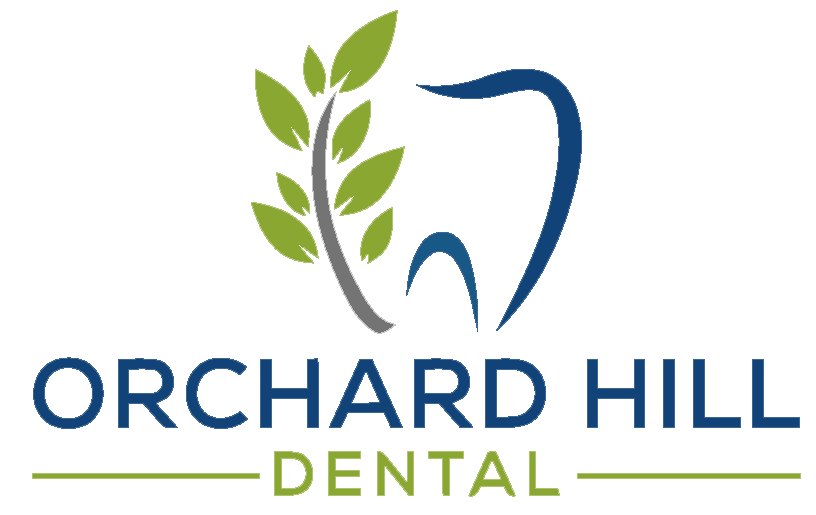Do your gums bleed when you brush or floss your teeth? You may be at risk for gum disease.
Bleeding gums are a common sign of periodontitis or gum disease. Gum disease develops from the infection of gum tissue. Plaque buildup can inflame the gums and cause them to bleed easily. As the infection progresses, pockets between teeth form, which can loosen teeth or cause them to fall out. For this reason, gum disease is the leading cause of tooth loss in adults.
Periodontitis can also be to blame for other dental problems that impact the teeth and gums. Dr. Jessica Christy, a dentist in Hendersonville, NC, and her dental team at Orchard Hill Dental provides treatment to remove the gum infection and preserve teeth.

Common Signs of Gum Disease
Gum disease can increase the risk of multiple conditions such as:
- Bleeding gums after brushing and flossing
- Gum swelling
- Halitosis (Bad breath)
- Gum recession
- Shifting teeth
- Loose teeth
If you have noticed any of these symptoms, call Orchard Hill Dental. Severe cases of gum disease may even cause or exacerbate heart problems including:
- Cardiovascular disease
- Stroke
- Diabetes
- Heart attacks
Gum Disease Stages
Gum disease is a common dental problem that affects the gums and the bones that support your teeth. It usually starts small, but if left untreated, it can become serious and even lead to tooth loss.
Stage 1: Gingivitis
Gingivitis is the first stage of gum disease and is the easiest to treat. It happens when plaque builds up on your teeth and gums. Plaque is a sticky film made of bacteria, and if you don’t remove it with regular brushing and flossing, it can irritate your gums. You might notice your gums look red or swollen and bleed when brushing or flossing. In this stage, there is no damage to the bone or deeper parts of your mouth, so with good dental care and a professional cleaning, your gums can return to normal.
Stage 2: Early Periodontitis
If gingivitis isn’t treated, it can turn into early periodontitis. In this stage, the plaque hardens into tartar, which is much harder to remove. The bacteria in the tartar cause your gums to pull away from your teeth, creating small pockets where more bacteria can grow. You may notice bad breath, mild pain, or that your gums seem to be shrinking. At this point, the bone around your teeth may start to break down, and a dentist will need to clean below the gumline to stop the damage.
Stage 3: Moderate Periodontitis
In moderate periodontitis, the damage becomes more serious. The pockets between your teeth and gums grow deeper, and more bone is lost. Your teeth might feel loose, and you may experience more pain or sensitivity. Infection can spread below the gumline, and your body may react by breaking down more of the bone that holds your teeth in place. Treatment may include deep cleaning, antibiotics, or surgery to save teeth.
Stage 4: Advanced Periodontitis
This is the most serious stage of gum disease. The gums, bones, and tissues that support your teeth have been badly damaged. Teeth may move, shift, or even fall out. You may find it hard to eat or speak comfortably. Tooth loss is likely without treatment, and the infection can spread to other parts of your body.
Treating Bleeding Gums
Dr. Christy offers periodontal disease treatment, and laser dentistry. With a soft tissue diode laser, Dr. Christy can safely remove infected gum tissue from the tooth root. Then, she scrapes plaque from below the gum line and smoothes the tooth root to prevent future infection. Laser dentistry is a modern and painless way to provide effective periodontal treatment.
Preventing Bleeding Gums
There are several key preventative measures that you can take to ensure the health of your teeth and gums. Visiting the dentist twice a year for regular tooth cleanings can help you maintain your oral health. At-home care is just as important. Brushing and flossing twice a day, and even after meals, is the best way to prevent problems like gingivitis from developing into periodontitis.
Bleeding Gums FAQs
Bleeding gums are something you should never ignore. Learn more by reading the answers to these frequently asked questions.
Is it normal for gums to bleed sometimes?
Occasional bleeding may happen if you’ve recently started flossing or changed your brushing technique. However, regular bleeding is abnormal and can indicate gum disease. Healthy gums should not bleed when touched or cleaned. Persistent bleeding should be evaluated by a dental professional.
Should I stop flossing if my gums bleed?
No, you should not stop flossing if your gums bleed. Flossing helps remove the plaque and bacteria that are causing the bleeding. It’s normal for gums to bleed when you first start flossing regularly. If the bleeding continues for over a week, talk to your dentist.
Can stress cause bleeding gums?
Yes, stress can affect your body’s immune response, making fighting infections like gum disease harder. When your body is under stress, inflammation in your gums may worsen, leading to bleeding. Stress may also lead to poor oral hygiene habits, contributing to the problem. Managing stress and staying consistent with dental care can help.
How can I stop my gums from bleeding?
Improve your oral hygiene routine to stop bleeding gums. Brush twice a day with a soft-bristled toothbrush and floss daily. Avoid aggressive brushing, and see your dentist regularly for cleanings and checkups. If bleeding continues, your dentist may suggest a deep cleaning or other treatment.
How long does it take for bleeding gums to heal?
If bleeding gums are caused by gingivitis, they can improve within a week or two of better brushing and flossing. However, more serious gum problems may take longer and require professional treatment. Sticking to a good oral hygiene routine and visiting your dentist can improve healing. If bleeding doesn’t stop after two weeks, seek dental advice.
When should I worry about bleeding gums?
You should be concerned if your gums bleed regularly, heavily, or even when you’re not brushing. These may be signs of gum disease or another health issue. Don’t wait to see us if your gums are also swollen, tender, or receding. Early treatment can prevent bigger problems later.
Contact our Dentist in Hendersonville, NC
Do your gums bleed? Are you looking for gum disease treatment? Call Orchard Hill Dental at (828) 247-7001 or request an appointment with Dr. Christy or a member of her dental team online. Our Hendersonville dentists are passionate about providing high-quality dental care.
